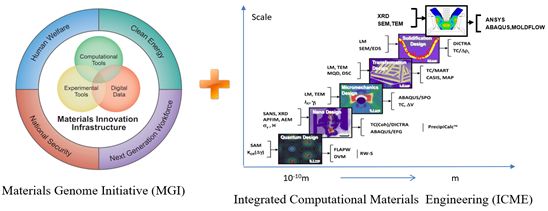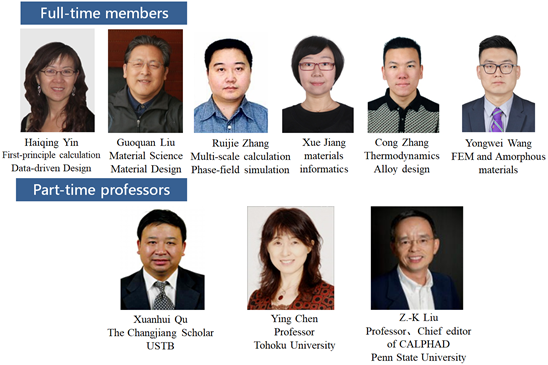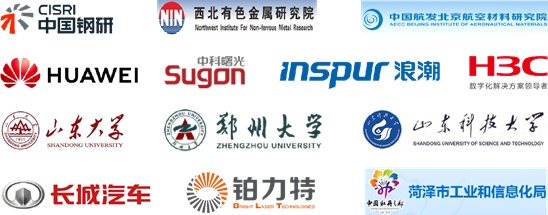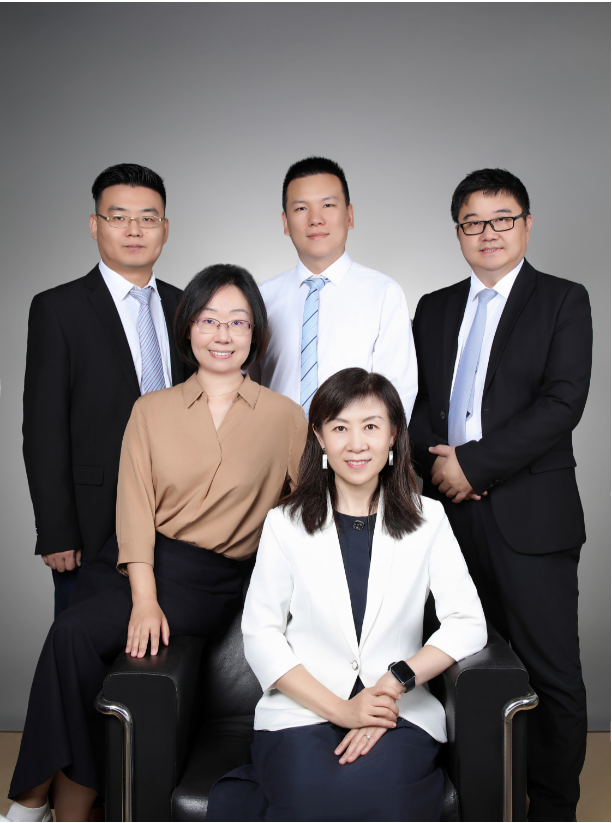
【Introduction】
Based on the concept of Material Genome Engineering (MGE) and in response to the urgent need for the independent development of materials for national major projects, there is a requirement to shorten the research and development cycle and reduce the cost of development. This is achieved through the comprehensive integration of key technologies such as high-throughput integrated computing, data mining, machine learning, additive manufacturing, etc. The goal is to realize the collaborative optimization design of advanced materials in terms of composition, process, structure, and performance. This will involve the construction of a material design platform and the establishment of a high-level interdisciplinary, domestically leading, and advanced collaborative innovation research institute in the field of materials design. Research directions include but are not limited to: high-throughput computing, machine learning, and database technology in material genome engineering; the application of additive manufacturing technology in the preparation of high-performance structural materials; cross-process, cross-scale optimization, and intelligent manufacturing of steel materials, high-entropy alloys, high-temperature alloys, aluminum alloys, amorphous alloys, and metal-ceramic composites.

【Personnel information】
The institute consists of 6 core researchers, namely Professor Haiqing Yin, Professor Guoquan Liu, Associate Professor Ruijie Zhang, Associate Professor Xue Jiang, Associate Professor Cong Zhang, and Assistant Professor Yongwei Wang. Additionally, the institute includes 3 part-time experts: Professor Zi-Kui Liu from Pennsylvania State University, Professor Ying Chen from Tohoku University, and Professor Xuanhui Qu from University of Science and Technology Beijing. Several of these professors also serve as undergraduate mentors for undergraduate SRTP (Student Research Training Program). This structure forms a highly-skilled, well-organized research team with complementary expertise, contributing to high-level research and innovation.

【Research fields】
1. Integrated computational materials calculation, simulation and application.
2. Data-driven advanced materials design and application.
3. Materials genome engineering and Demonstration application.
4. Design and Manufacture of cermet composite materials, bio-ceramic dental materials, Cu-based anti-friction materials and metallic glass.
5. Integration of design and manufacturing of automotive parts.
6. Smart design and intelligent manufacturing of metallic materials.
【Scientific research strength】
The institute has developed common key technologies for integrated computational materials engineering, achieving breakthroughs in the application of cross-level, multi-scale material design methods. This was accomplished through the integration of first-principles calculations, phase diagram thermodynamics, diffusion kinetics, phase-field simulations, finite element analysis, and machine learning techniques. These methods enable the integrated analysis of composition, process, structure, and performance for steel and powder metallurgy materials, thereby accelerating the research and development process and reducing costs. The institute has established the Material Science Data Sharing Network (Version 2.0) (http://www.materdata.cn/), which contains high-quality data for over 20,000 materials, including more than 3,000 types of steel materials, with over 700,000 data entries.
The institute has received one national science and technology award, four provincial and ministerial-level science and technology awards, published over 110 high-quality research papers in the past five years, with over 90 of them indexed in SCI/EI, authored or translated 8 specialized books, and supervised 24 doctoral and master's students. They are involved in various research projects, including the 13th and 14th National Key Research and Development Programs, projects from the Military Science Commission foundations, National Natural Science Foundation of China, Beijing Natural Science Foundation, Beijing Science and Technology Planning Project, and long-term collaborative projects with enterprises such as the Iron & Steel Research Institute Group, Antai Technology, Hegang Group, Shasteel Group, and Aluminum Corporation of China.
【Employment and further education】
The institute has successfully nurtured graduates with bright career prospects. Nearly a hundred outstanding doctoral and master's graduates have made significant contributions across various regions of the country. They have found employment in diverse sectors, including:
State-owned enterprises such as the Iron & Steel Research Institute Group and the Northwest Institute for Non-ferrous Metal Research. Research institutions like the AECC Beijing Institute of Aeronautical Materials and the Zhejiang Institute of Medical Device Testing. Prominent private companies such as Huawei, Sugon, Inspur, H3C, GWM, Volkswagen, BLT, GIAN, and Shandong Microwave Electronic-Vacuum Technology. Academic institutions include Zhengzhou University, Shandong University, Shandong University of Science and Technology, Hebei University of Engineering, North China University of Water Resources and Electric Power. Public institutions like the Industry and Information Technology Bureau of Heze Municipality.



